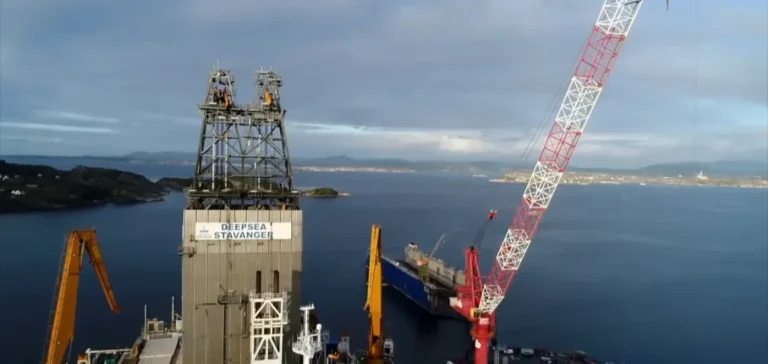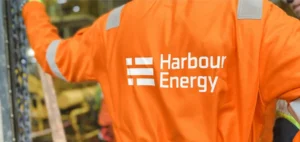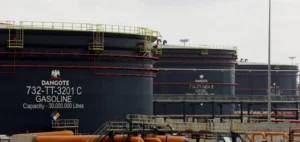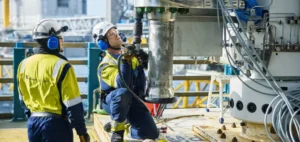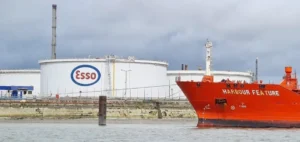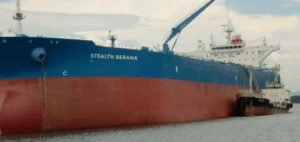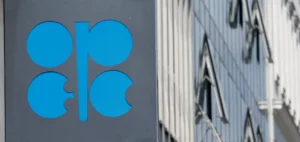Nigeria has commissioned its first Floating Storage and Offloading unit (FSO) fully owned by national entities. Named FSO Cawthorne, the facility is positioned off the Bonny terminal and marks a significant shift in the federal government’s handling of crude oil export operations.
Until now, export operations mainly depended on terminals operated by international companies such as Shell, TotalEnergies, Chevron, or Eni. The Nigerian state had to rely on chartered platforms, limiting its control over the logistics chain and exposing shipments to additional costs or disruptions.
A project supported by public entities
The new FSO, with a storage capacity of 2.2 million barrels, now allows Nigeria to load tankers directly without using private infrastructure. The project was led by the state-owned Nigerian National Petroleum Company Limited (NNPC Ltd), in partnership with Sahara Group, Eroton Exploration & Production, and Bilton Energy, under the Oil Mining Lease (OML) 18.
The lease aims for production to reach nearly 50,000 barrels per day by year-end. The floating unit is expected to reduce reliance on onshore pipeline networks, often affected by leaks, sabotage, and delivery delays.
Reducing structural losses in the sector
According to the Nigerian Upstream Petroleum Regulatory Commission (NUPRC), around 200,000 barrels of crude oil per day were lost in 2022 due to theft and vandalism. Although the situation partially improved in 2023, the government continues to prioritise physical infrastructure security as a means of protecting public revenue.
The launch of the FSO Cawthorne comes as NNPC Ltd transitions into a commercial entity since 2022. The reform aims to strengthen public investment capacity in strategic oil assets. The floating platform complements ongoing refurbishment projects at the public refineries in Port Harcourt, Warri, and Kaduna.
A lever of sovereignty over the export chain
Public control over this infrastructure allows Nigeria to limit value losses in crude oil exports. The initiative also aims to improve logistical planning, particularly by ensuring continuous loading regardless of technical constraints at foreign facilities.
An NNPC Ltd operational official stated that the platform “provides a permanent national export point for cargoes from OML 18.” This development reinforces the country’s strategy to increase the direct impact of public investment in the oil sector, while adapting infrastructure to global market demands.


